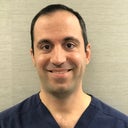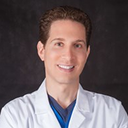Plastic surgery, by definition, is surgical restoration of the form of the body. It's etymology comes from the Greek word plastikē, meaning the art of molding – in this case flesh. The type of plastic surgery that we think of does not always mean cosmetic and can include lots of other types of reconstruction of the human form. In medical training, there are several ways to get to plastic surgery. The type most commonly thought of is those who do a general surgery residency and then do a subspecialty in plastic surgery. You can also get to this route by doing ophthalmology, ear nose and throat, or dermatology and then doing a fellowship for your subspecialty training.Those groups of physicians are commonly known as the "core four" of cosmetics, as there is a lot of overlap in the types of procedures that they do with relation to plastic surgery. That being said, all of those different subspecialties do you have a foundation in their respective areas prior to plastic surgery. For example, the general plastic surgeon has more experience with work on the body, so they are more likely to do breast surgery and reconstructions or butt surgery. The oculoplastic surgeon is more likely to do orbital surgery because of their background, the dermatologist is more likely to do reconstructions that involve the skin and soft tissue, not necessarily bony work.From a pure cosmetic standpoint, all of these physicians are likely to do basic aesthetic procedures such as neurotoxins or fillers. When it comes to facelifts, eyelid surgeries, etc. you want to make sure that your physician has a lot of experience with these during his or her fellowship training. The key emphasis there is fellowship training, even a plastic surgeon may only do a handful of faceless in the residency training, it's really that subspecialty training in cosmetics afterwards where your doctor can easily get five or 10 times the number of procedures that they did in residency.In summary, seek out a dermatologic surgeon, oculoplastic surgeon, facial plastic surgeon or plastic surgeon who is board certified and fellowship trained in one of these "core four" cosmetic specialties, find somebody that you like and trust, make sure they have done enough procedures, and find somebody who is passionate about that particular procedure that you seek - they will just do naturally better job, and you should be able to pick us up easily during your consultation.




